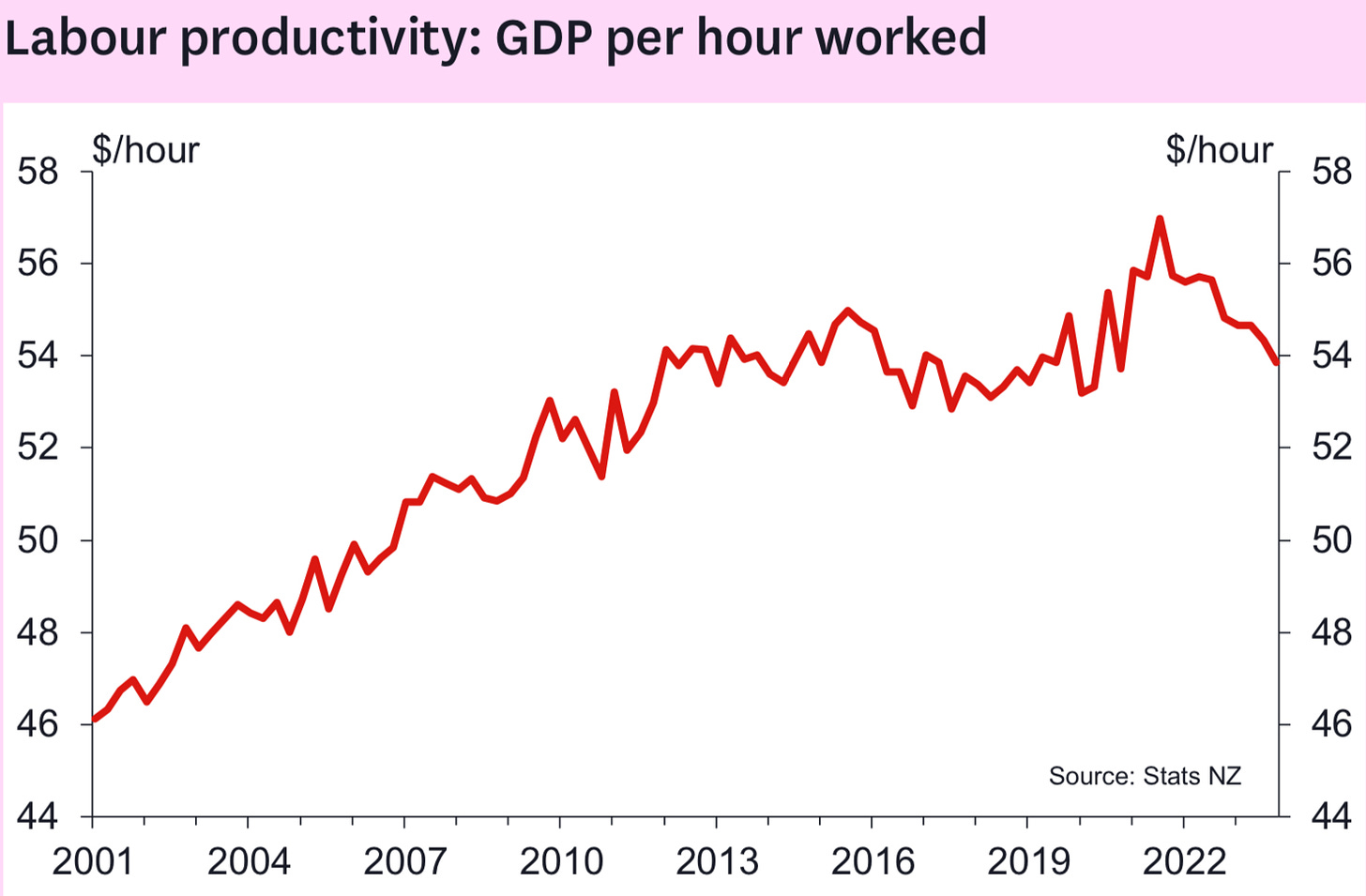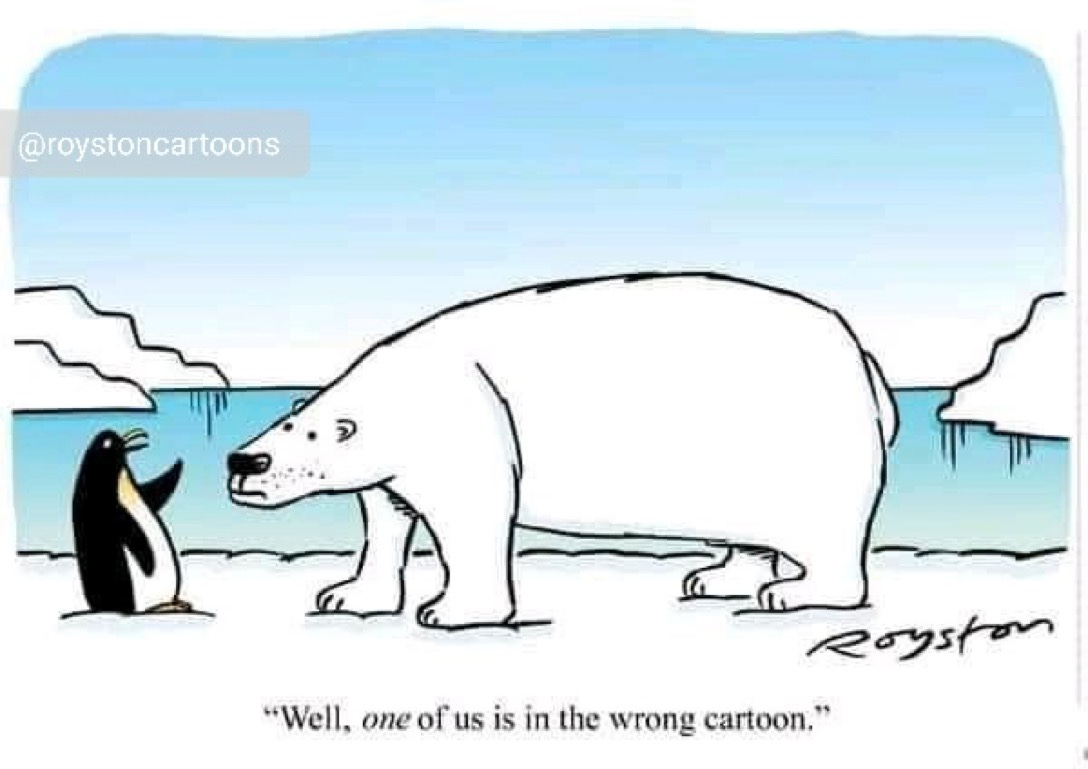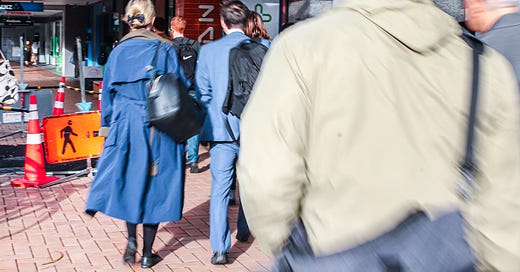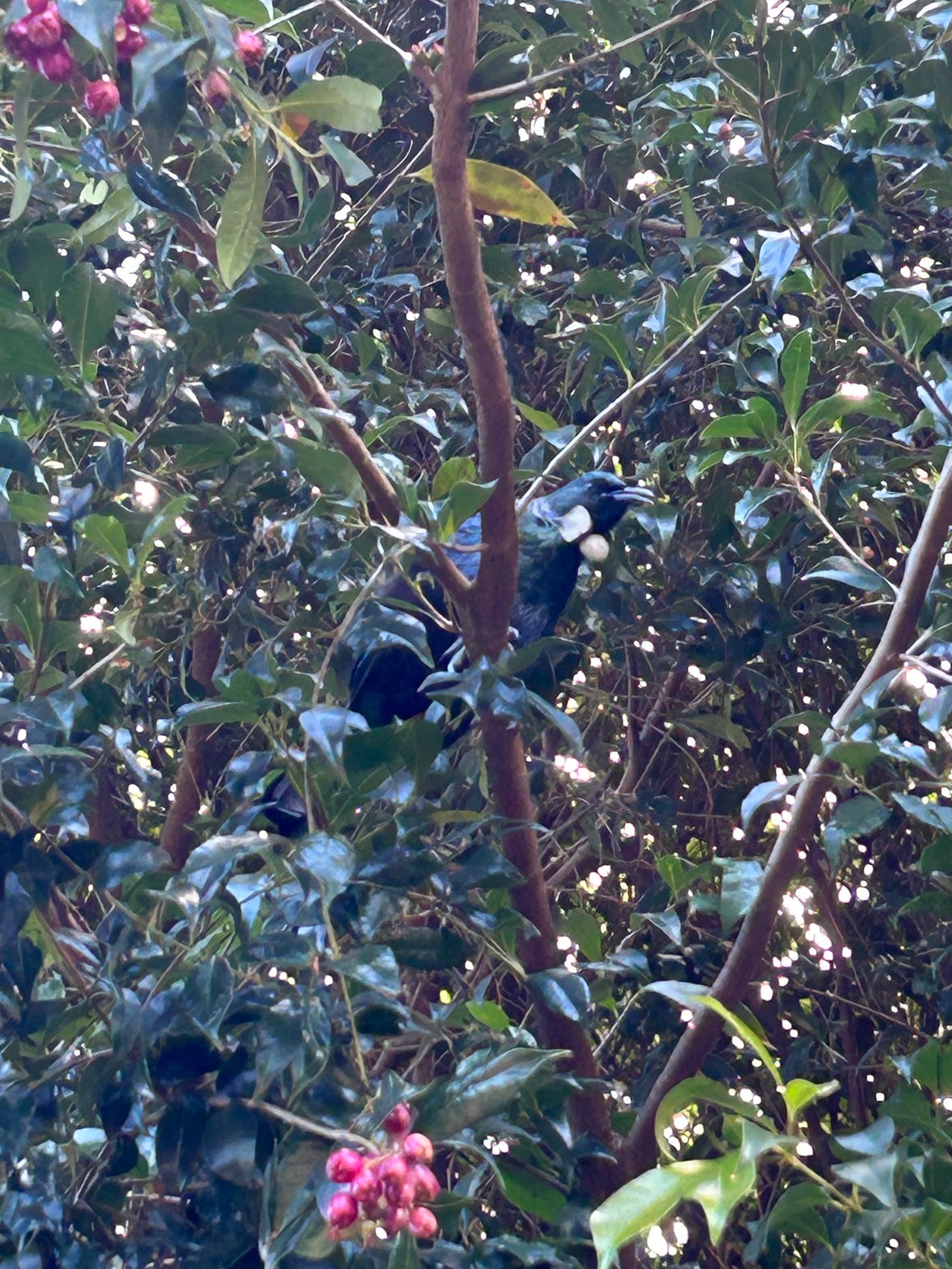
TL;DR: My six things to note in Aotearoa’s political economy as at 6:26am on Tuesday, March 26 include:
Workers have been treading water in output per hour worked for 12 years, an analysis of GDP data for 2023 showed1 yesterday, emphasising Aotearoa Inc’s lack of productivity progress since the Global Financial Crisis (See chart of the day below);
Our low-to-no productivity growth is thanks to low investment in public infrastructure, skills and businesses so any spare household and business cash can be put into leveraged land for tax-free gains or repatriated in dividend form to overseas owners;
That failure to invest in real assets is amplified by successive Governments of both flavours failing to reform our taxation system and invest more in public assets in a way that would transform the economic and political incentives in our housing-market-with-bits-tacked-on;
The Government’s announcement yesterday of cash-back for childcare costs of up to $75/week per family2 is an another example of a tweak to the taxation and transfers system to maximise disposable income to service higher household debt of owners and property investors in the form of rents and interest payments;
It serves the dual purpose of allowing more people in the household to work more hours for more pay, rather than working the same hours for more pay, which would be the benefit of productivity growth; and,
This bits-tacked-on model worked spectacularly well for residential home and land owners over this period, with the value of these assets owned by households rising by $1 trillion to $1.6 trillion in the same period that real output per hour worked was unchanged.
In summary, the size of our nominal GDP has grown because we added more people, got a larger share of those people to work, and on average each worked longer per week to achieve higher incomes. The ‘fruit’ of that growth went into residential home land values because not enough land with homes was made available for all those extra people and total wages.
(I’ve put most of today’s post above the paywall fold, given the public interest involved. Thanks again to paying subscribers for their support in this work covering Aotearoa-NZ’s political economy around housing, climate and poverty. Join us as a paying subscriber for access to deeper reporting, analysis and our podcasts. Full subscribers can also comment on posts, and in the Substack app, which now has a vibrant community.)
Elsewhere this morning in our political economy and in geo-politics:
Child Poverty Action Group and Public Housing Futures published an alternative review of Kāinga Ora this morning, calling on the Government to commit public funds to build and retrofit public housing at a scale and pace to deal with our housing crisis.
Overnight, the UN Security Council passed its first resolution demanding a ceasefire in Gaza. Reuters
Boeing’s CEO, Chairman and head of commercial airplanes resigned amid a series of production quality and safety crises around its 737-Max plane. Reuters
Just briefly:
Council loses landmark legal challenge to mega-irrigation scheme The Post-$$$ Andrea Vance
Revealed: CTU finds another $500m shortfall in Government's tax plan Newshub
Safety fears as Police prepare to pull back from distress calls NZ Herald
'Call to action': Northlanders urged to save their emergency services from funding cuts by regional council Newshub
Council agrees to buyout slip-damaged Tauranga homes 1News
Charts of the day
Treading water

GDP per capita down more than during GFC

Cartoons of the day
Lollipop lad

North vs South

A Budget Policy Statement
Timeline-cleansing nature pic
Where’s Wally?
Ka kite ano
Bernard
PS: I’d highly recommend getting the app. There are some great conversations going on there between people on the paid subscriber tier for The Kaka.
This was promised in the election, although the exact form of benefits for families as a cash payment via IRD after childcare receipts are submitted is different to the tax rebate suggested in National’s policy, and is a lower amount for large families with higher incomes. Families can only apply online and must submit invoices every three months through an IRD portal. The total cost Here’s the details via a ministerial Q&A document.

















Share this post